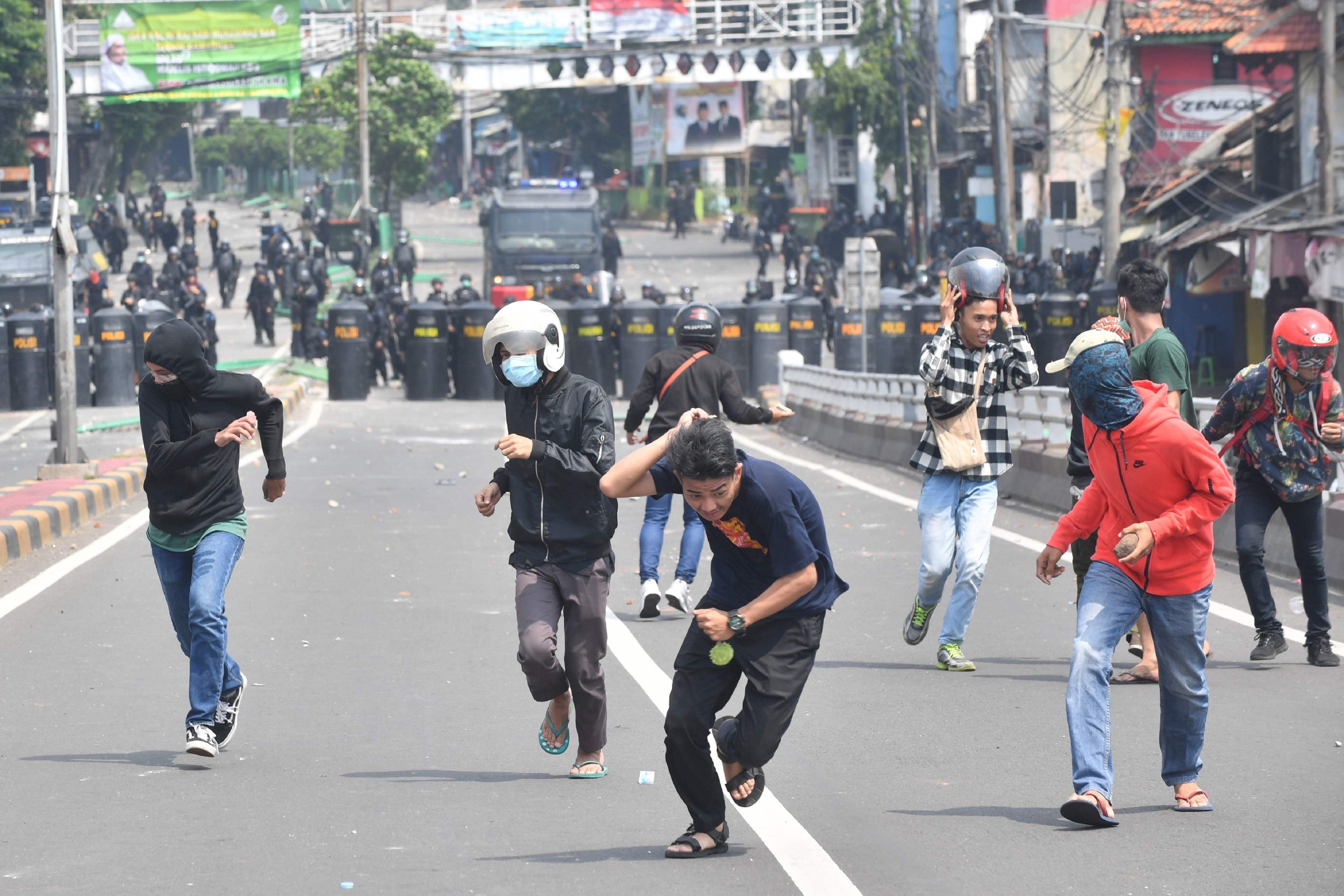Is it safe to visit Indonesia during riots and political unrest?
Foreign Office warns of ‘risk of violence’

Your support helps us to tell the story
From reproductive rights to climate change to Big Tech, The Independent is on the ground when the story is developing. Whether it's investigating the financials of Elon Musk's pro-Trump PAC or producing our latest documentary, 'The A Word', which shines a light on the American women fighting for reproductive rights, we know how important it is to parse out the facts from the messaging.
At such a critical moment in US history, we need reporters on the ground. Your donation allows us to keep sending journalists to speak to both sides of the story.
The Independent is trusted by Americans across the entire political spectrum. And unlike many other quality news outlets, we choose not to lock Americans out of our reporting and analysis with paywalls. We believe quality journalism should be available to everyone, paid for by those who can afford it.
Your support makes all the difference.Jakarta has been rocked by violent demonstrations and political unrest following the announcement of the general election results on 21 May.
As the protests continue, is it safe for UK tourists to travel to Indonesia?
Here’s everything you need to know.
What’s going on in Indonesia?
Following the election commission’s announcement on Tuesday that President Joko Widodo had beaten former general Prabowo Subianto, there have been demonstrations in central Jakarta, some of which have resulted in violence.
The protests have left eight people dead and 700 injured, according to Jakarta governor Anies Baswedan.
Unrest is expected to continue and cities on the islands of Java and Sumatra could also be hit, warns the Foreign Office (FCO).
How will it affect tourists?
The FCO is advising of significant traffic disruptions in areas where demonstrations occur.
“The Indonesian authorities expect the demonstrations to continue and have put in place security personnel and some road closures,” reads the updated advice on its website.
What precautions should tourists take?
The FCO is telling British visitors to “avoid all protests, demonstrations and political rallies as they could turn violent with little notice”.
Aside from the political situation, the FCO also warns that terrorists are “very likely” to try to carry out attacks in Indonesia.
Small-scale attacks occur on a regular basis and further incidents are likely. Attacks could be indiscriminate, including in places frequented by foreigners.
The FCO says: “Be vigilant and take care at all times. You should regularly review your security arrangements and be particularly vigilant during holiday periods including the Christmas and New Year period, Chinese New Year, Nyepi (Balinese New Year), Easter, Ramadan, local elections and Independence Day (17 August) which can be a time of heightened tension and increased risk.”
Should you avoid all travel to Indonesia?
Although internal developments, such as elections, and external developments, including in the Middle East, can trigger public protests or unrest, the overall political situation is stable, according to the FCO.
There is no travel ban in place, such as the one recently applied to Sri Lanka, and therefore UK tourists’ travel insurance will still be valid and they can seek help from the British consulate if required while in Indonesia.
“Around 390,000 British nationals visit Indonesia every year. Most visits are trouble free,” says the FCO.
The Australian Department of Foreign Affairs and Trade (DFAT) advises visitors to “exercise a high degree of caution” in Indonesia overall including Bali, and suggests tourists reconsider travelling to Poso Regency in Central Sulawesi and Papua Province due to safety and security risks.
Join our commenting forum
Join thought-provoking conversations, follow other Independent readers and see their replies
Comments